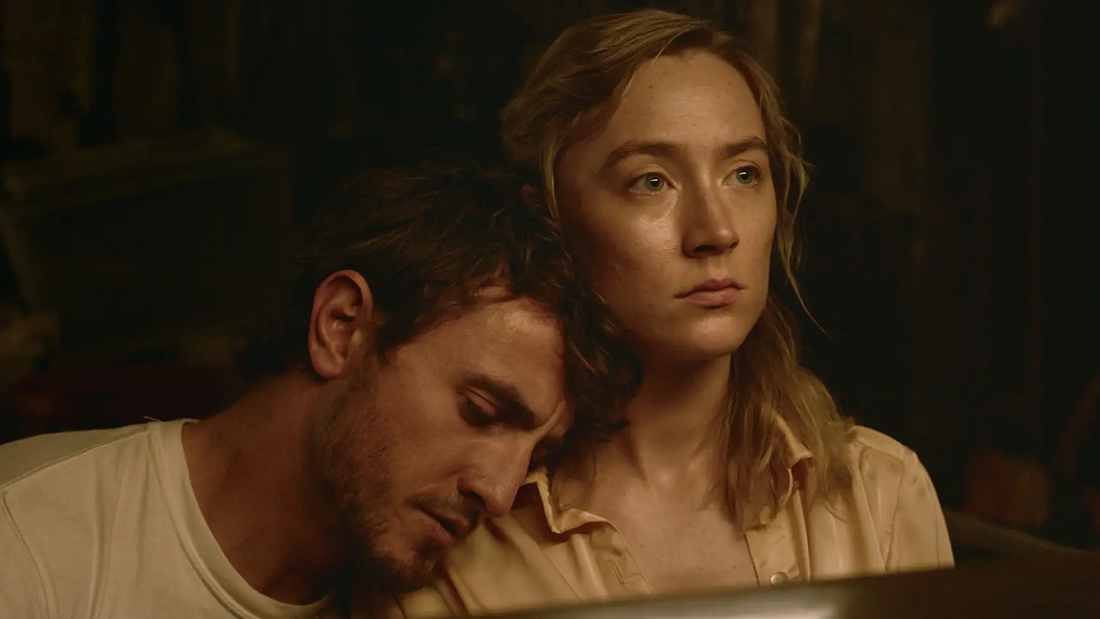
Review: Foe – Two long hours of disappointment and disconnect
Directed by Garth Davis
Starring Paul Mescal, Saoirse Ronan, Aaron Pierre
4/10
Foe is very Black Mirror. It’s a dark sci-fi drama with a twist, a little bite, and a moody atmosphere. It’s just too bad that it isn’t an episode of Black Mirror, because it feels like an hour-long story stretched out to two hours. And despite a few sweeping landscape shots, it’s mostly spent in a dusty old house with people yelling, crying, or being generally unhappy. The story’s biggest driver is just waiting for that Black Mirror twist, but it’s one that is painfully obvious when the story is about human replacements.
In Foe, an isolated couple lives in a desolate world. The husband (Paul Mescal) works at a chicken processing plant, and the wife (Saoirse Ronan) is a waitress. They’re distant, and they have no friends or family. One night, a company man (Aaron Pierre) arrives and tells them of the fantastic opportunity to be an astronaut – so that mankind might one day leave Earth behind. But it’s not just an opportunity, he’s been drafted. As the husband’s departure approaches, a clone husband is offered, and the couple spiral dramatically and psychotically while the company man comes along for the ride.
Emotional disconnect is the main theme of Foe. Not environmentalism, nor marital power struggles, nor feminism, or the dangers of technology – those are just red herrings. This focus on the couple’s relationship puts the weight of the film on the actors’ shoulders, and their chemistry. But despite strong performances from Mescal and Ronan, they’re let down by the script.
The dialogue is bogged down by explanations and callbacks, which sacrifice the quirks and minutiae of married life. It’s always big scenes with important lines – ‘This house has been in my family for five generations,’ then later this pays off during an argument when we hear ‘I can’t leave, my family is buried out back.’ All this so-called important information gets in the way of natural conversation. And the characters’ actions suffer from the same issue. There is no grocery shopping, no quiet time, just dramatic gestures and arguments. Yet somehow all this melodrama doesn’t amount to much.
So when the big dramatic moment arrives, when they’re bawling their eyes out – kicking and screaming about love – you wonder if you missed the part where they were in love. Sure, they had sex once or twice, and they didn’t attack each other, but is that enough? The dud of a twist finally drops alongside this climax, and you might breathe a sigh of relief – so that’s where all this brooding and emotional disconnect was going? But that’s not the end, and it’s followed by another half-hour of unhappiness, a second, minor twist, and a flat ending.
If the film is worth watching for anything it’s the Australian landscapes, which are barren and beautiful. Horses flee a burning barn in the night, a farmer chases suited men through a dead forest, a couple honeymoon on pink salt flats… but these few brief highlights don’t justify the rest of this film – which ultimately overpromises and under-delivers.
BRANDEN ZAVALETA
